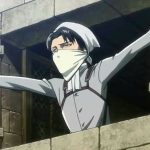For individuals who suffer with Trichotillomania, the urge to pull their own hair can be overwhelming. While this might seem to many like a bizarre, self-destructive behavior, to those with Trichotillomania, this powerful urge can leave them with large bald spots on their scalp, no eyebrows, or no eyelashes.
Fortunately, researchers are starting to learn more about the origin of the disorder and possible treatments. One recent study conducted at the University of Minnesota School of Medicine in Minneapolis has uncovered a promising potential avenue for future treatment of this condition.
The research, published in the Archives of General Psychiatry (July 7, 2009), found that an amino acid, N-Acetylcysteine, was successful in significantly reducing Trichotillomania symptoms in study participants. Fifty-six percent of those participating in the study were “much or very much improved” after a nine week course of taking 1,200 to 2,400 milligrams of N-Acetylcysteine per day, compared to only 16% of participants in the control group taking a daily placebo. And those frustrated by expense of most psychiatric medications will be happy to know that N-acetylcysteine can be readily purchased at most health food and vitamin stores.
On a different front, a 2006 study done at Duke University in North Carolina identified two gene mutations that appear to be linked to the development of Trichotillomania. The research team at Duke focused on 44 families in which at least one person had Trichotillomania. They found that these two gene mutations were present in those family members with Trichotillomania, while the gene mutations were not present in other family members who did not have the condition.
These two studies auger well for those suffering with Trichotillomania, and by extension, those with similar impulse control conditions such as Dermatillomania (Skin Picking Disorder), and Onychophagia (compulsive nail biting). And though a “cure” is likely years off, it seems safe to say that researchers are starting to unravel the complex web of interacting factors that appear to be involved in these conditions.
•Tom Corboy, MFT, is the director of the OCD Center of Los Angeles, a private, outpatient clinic specializing in Cognitive-Behavioral Therapy (CBT) for the treatment of Obsessive-Compulsive Disorder (OCD) and related conditions. In addition to individual therapy, the center offers six weekly therapy groups, as well as online therapy, telephone therapy, and intensive outpatient treatment. To contact the OCD Center of Los Angeles, click here.




























































